An Interview with...
Speaking with artists about their craft
Speaking with artists about their craft
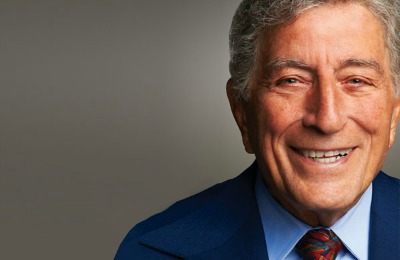
Tony Bennett (2012)
“Corporations were saying, ‘You’re not doing disco! You’re not doing rap! Why aren't you with the times?’ I'd say, ‘Well, I just do quality songs.’” (read more…)

Lucinda Williams (2011)
“Everybody always asks me what the theme is,” Lucinda Williams says, her drowsy Southern drawl punctuating her frustration at having this question put to her for what must be the umpteenth time. “I just go in and write the songs. And, I guess, whatever I’ve been dealing with at that time, that’s what’s going to come out.”
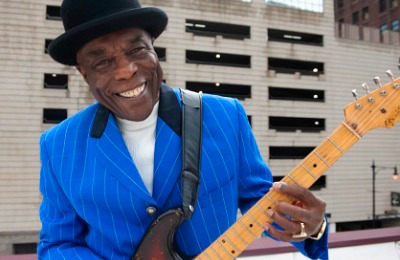
Buddy Guy (2012)
“It’s kind of scary,” says Buddy Guy, his voice quivering with ominous unease. “Blues music is like an endangered species almost.
“The few of us that’s still left,” he adds, “they don’t play our music for some reason much anymore, hardly any.”
Guy, 75, knows of which he speaks. In a narrative steeped with down-home candor reflective of his Louisiana roots, his new autobiography, When I Left Home: My Story, co-written with David Ritz, underscores how amongst the most mythic figures of the Chicago blues he forged his artistry to become one himself—and ultimately one of the last of a dying breed. (read more...)
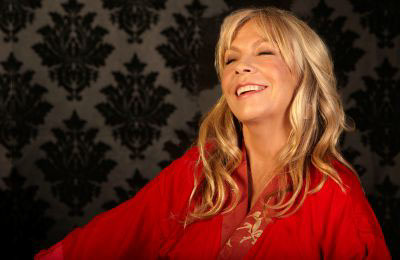
Rickie Lee Jones (2015)
“I think it’s just the way I am. It’d be hard to make a choice to be vulnerable. I can’t imagine any other way to sing a song but the way I sing it, because that’s the joy of singing it, is that I feel all of it every time I sing it. It’s like stepping into a movie instead of watching it, and I can be anybody I want to be in the course [of it]. I’m also the narrator, so it’s very wonderful and complex. Sometimes in acting or feeling one of the parts, when I pull back to be the narrator I get choked up sometimes and I do cry.” (read more...)
“I think it’s just the way I am. It’d be hard to make a choice to be vulnerable. I can’t imagine any other way to sing a song but the way I sing it, because that’s the joy of singing it, is that I feel all of it every time I sing it. It’s like stepping into a movie instead of watching it, and I can be anybody I want to be in the course [of it]. I’m also the narrator, so it’s very wonderful and complex. Sometimes in acting or feeling one of the parts, when I pull back to be the narrator I get choked up sometimes and I do cry.” (read more...)
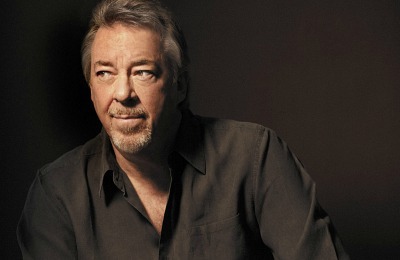
Boz Scaggs (2014)
Call it intuition or a sixth sense or just faith in his own perception: Boz Scaggs knows when he’s onto something good. In a career spanning more than forty years he has explored virtually every genre of American popular song, producing a string of eclectic, innately soulful classics along the way.
“It’s not something that perhaps I knew when I started out doing this,” says Scaggs, “but having done it as long as I have I know when I connect my voice and the emotion of a song.” (read more...)

Susanna Hoffs (2013)
“There is something about that music,” says Hoffs, reflecting on what is essentially the soundtrack to her adolescence, from the Beatles’ deceptively simple early hits to more ornate productions by the likes of the Left Banke, the Buckinghams, and Love. “You don’t notice that much when you’re listening to the songs, but when you go back and revisit them, you’re like, ‘Wow, listen to that string part! Listen to that horn part! There’s a cool harpsichord in there!’
“There’s just so much intensity and beauty and melody in the music,” she adds. “I just never outgrew it. I never got over it. I never got over the passion for how I feel, the way I connect to that.” (read more…)
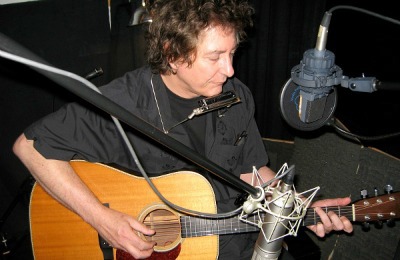
Stan Ridgway (2010)
“Part of the fun of making anything is that you don’t want to just throw it in a drawer and make it all disappear. Part of it is throwing it to the dogs, so to speak. See what happens. You sort of have to take what comes. I’m usually thinking what I’m writing about is directed toward people who’d understand it. Writing is risk. And if you don’t risk, then you’re not going to have much writing going on.” (read more…)

Bill Frisell (2011)
“I’ve been playing [the guitar] for 50 years or something, and then today I’ll grab it and it’s like, ‘Oh my God, how am I gonna play this thing?’ It still feels like that. You’re just at the beginning all the time. That’s something I’ve had to get comfortable with. It can be discouraging. It can bum you out, like, ‘Man, I’m never gonna get it.’ But then part of the thing with music is you have to be comfortable with the idea that you’re never gonna get it right. You just have to get as close as you can. Everything I play is just an approximation of what I wish I could really play.” (read more...)
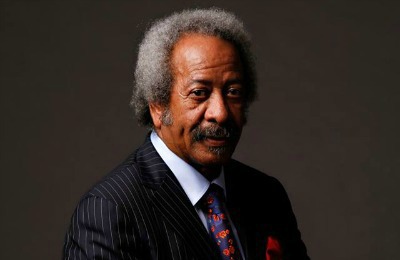
Allen Toussaint (2013)
"I always just worked diligently at learning new things because this music world is quite a journey. There’s always something new. There’s always a new melody [that] can come after all of these years. You still could write a new tune tomorrow. There’s always music to learn, exercises even to practice. So it’s quite a journey." (read more...)
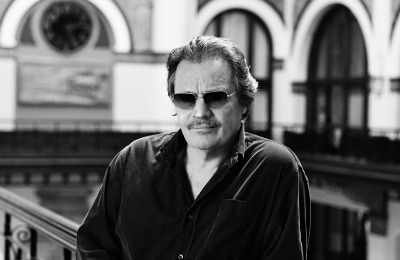
Delbert McClinton (2013)
“The thing about songwriting is you have to expose yourself to it every day. Morning is the best time for me. I’ll get me a cup of coffee and I’ll even sit down with a guitar or piano, and just start musing, so to speak, trying to get something musically going that feels like something that I want to do. Or you’ll hear a phrase, you know, a three-word phrase, whatever. I’ll hear it and say, ‘Ooh, that’s a good line. I could use that somewhere,’ and I’ll write it down. It’s just being aware and having the passion to do it.” (read more…)
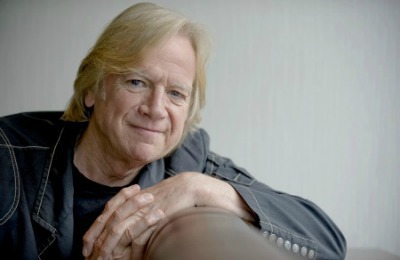
Justin Hayward (2013)
In the early days of the Moody Blues, lead vocalist and guitarist Justin Hayward remembers, “The other guys would often look to me to start an album, because we were contracted to make a certain number of albums in a certain amount of time.” Beginning with 1967’s Days of Future Passed, most notably featuring the rapturous “Nights in White Satin,” Hayward would ultimately pen many of the legendary British band's most defining classics.
“That was a bit of pressure,” Hayward adds, “but only in a nice way. It certainly got things done.” (read more...)
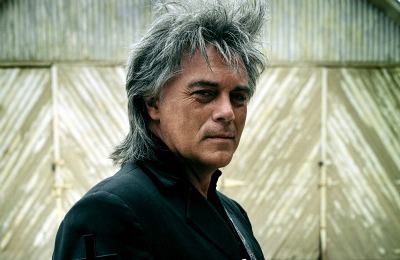
Marty Stuart (2010)
“The bottom line is the song,” Stuart insists. “You’ve got to have the right song. You can be the coolest guy in town—have the best bus, the best band, the best everything—but until that song comes along that gives you a job with the masses, you’re stuck just being the coolest guy in town.” (read more...)

Christina Perri (2010)
Despite any accoutrements that have accompanied her seemingly overnight success, Perri is at heart a resourceful songwriter, musician, and vocalist with a deep, long-held commitment to her craft.
Despite any accoutrements that have accompanied her seemingly overnight success, Perri is at heart a resourceful songwriter, musician, and vocalist with a deep, long-held commitment to her craft.
“There’s a little more pressure,” she says of how her approach to songwriting has changed since signing to Atlantic Records, “and definitely more listeners. So the process has changed a little bit, not completely because otherwise it wouldn’t be authentic to who I am.” (read more...)
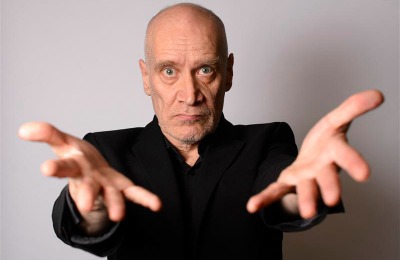
Wilko Johnson (2014)
“When I was real young I just played in bands because it was great fun,” says Wilko Johnson, recalling, “It wasn’t one of my ambitions to be a musician. It was in fact a few years later that again we started a band, Dr. Feelgood, for fun.”
Out of the industrial malaise that characterized the band’s native Essex in the early seventies Dr. Feelgood emerged with the sort of vengeance and back-to-basics vitality that the punk movement would espouse only a few short years later, earning a reputation as an indefatigable live act armed with raw, ecstatic blasts of rhythm and blues. “It wasn’t fashionable or anything, what we were doing,” says Johnson. “We just wanted to play that good old music, and we did and it got successful.” (read more...)
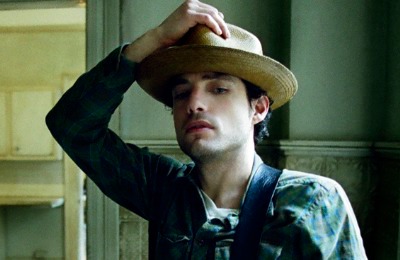
Jakob Dylan (2010)
“If all you were left believing was what you were seeing it'd be nothing but desperate,” Jakob Dylan says of the discontent he perceives throughout the current social climate. “To have hope you're going to have to imagine that there's something behind the curtain.” That collective despair, mitigated only by glimmers of optimism along the way, is what Dylan draws upon and evokes on his latest solo album, Women and Country. (read more...)

Lydia Loveless (2014)
“My main thing is to be a songwriter. It’s almost overwhelming. I’ll be doing something and be like, ‘I’ll write about this later.’ Then I’m like, ‘Well, I don’t want to cheapen this moment by thinking about how I’m going to write about it later.’ But I think that’s just a songwriter’s brain, I guess. So it all is kind of like potential songwriting fodder.” (read more…)
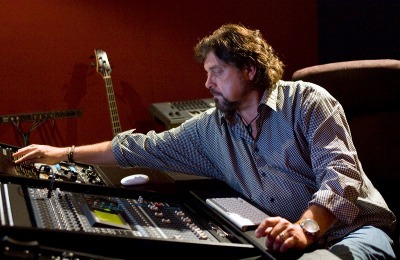
Alan Parsons (2010)
As digital technology has enabled some of the most innovative musicians to redefine the means of composition, so too has it facilitated record producers and engineers in broadening the possibilities of how music can sound. One of the foremost authorities on such matters, Alan Parsons chronicles the modern recording process in a three-DVD, nine-hour instructional series, The Art and Science of Sound Recording. (read more...)
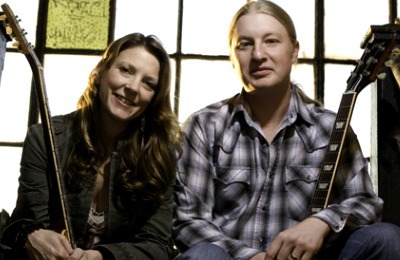
Susan Tedeschi and Derek Trucks (2011)
Tedeschi: “In the last 15 years I’ve come along way as a musician just because I’ve been able to play an instrument along with the band. I’ve been singing on stage since I was six, and I didn’t really start playing guitar on stage—especially electric guitar and really learning the guitar—until I was in my twenties. So it was in the last 20 years that I’ve just grown a ton, and I keep growing.”
Trucks: “I’m always of the mindset that a guitar solo—whatever solo it is—needs to be in the spirit of the tune or in the music, and it’s not supposed to completely distract from it. I think maybe from growing up in blues bars and seeing a thousand Stevie Ray Vaughan rip-offs and guitar wankery, I’m scared to ever be that. I try to go out of the way to not do that.” (read more...)
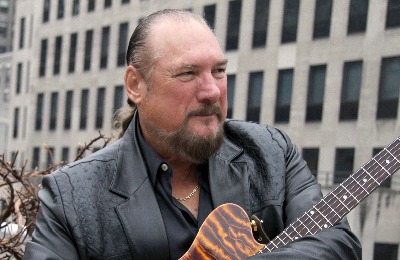
Steve Cropper (2011)
Like the most righteous of revelations, the one Steve Cropper experienced as young boy was a watershed. “I was probably a good 12 or 13 years old before I was allowed to listen to a radio,” the guitarist recalls. “I heard gospel music for the first time and it just, I don’t know, it just took me by whatever. It was the greatest stuff I’d ever heard. It was good-feeling music and it was very honest music; and that’s just something that drew me into it.”
Cropper soon recognized the same qualities in the secular expressions of R&B and soul, his profound appreciation ultimately informing the context of his career — one of the most singular and seminal in all of American music. (read more...)

Bruce Hornsby (2011)
“That person who’s going to a concert for a nostalgic reason, we’re not really going to placate,” Hornsby says. Nevertheless, he notes, “We still play three or four hits every night. Now, we don’t play them like the record. We try to find new ways to do it. I feel like what I owe my audience is what I’m most passionate about.” (read more...)

Haroula Rose (2011)
Haroula Rose sings with the spirit of a gypsy soul, always searching for meaning or a seed of truth in each fleeting moment. Her voice is at once intimate and solacing, its gentle inflections betraying a subtle, plaintive sway that enriches moments of guitar-driven folk with the pathos of classic country. [...]
Haroula Rose sings with the spirit of a gypsy soul, always searching for meaning or a seed of truth in each fleeting moment. Her voice is at once intimate and solacing, its gentle inflections betraying a subtle, plaintive sway that enriches moments of guitar-driven folk with the pathos of classic country. [...]
If at times her songs on her debut LP, These Open Roads, resonate with listeners as being heartbreakingly honest and vulnerable it’s only because she has confronted such fragility within herself. “When you’re a songwriter that’s part of what you give to people,” she says. “That’s part of what your job description is, in a way, to be able to express those things for other people to relate to and empathize with.” (read more...)
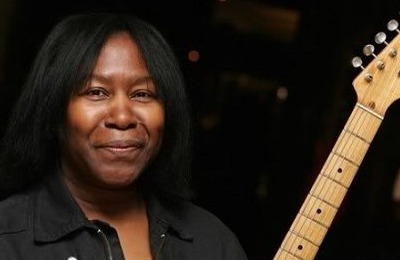
Joan Armatrading (2010)
“Writing is my absolute favorite thing to do,” Joan Armatrading says in no uncertain terms. “That’s the thing that I love.” It's of little wonder, too, especially considering the breadth and diversities of her canon. For nearly forty years, the British singer, songwriter, and multi-instrumentalist has produced an eclectic string of hits—among them “Love And Affection,” “Willow,” “Drop The Pilot,” “Show Some Emotion,” “Kissin’ And A Huggin’”—forging a singular career that is as influential as it is renowned. (read more...)
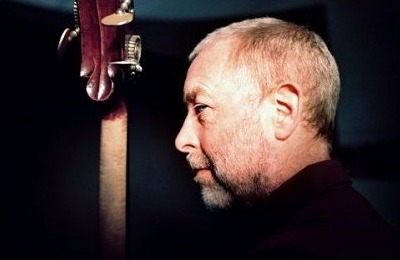
Dave Holland (2010)
For the legendary jazz bassist, a three-time GRAMMY® winner, his current album Pathways is but the latest manifestation of the ingenuity he's contributed to his craft and encouraged in his fellow musicians for over 40 years. As well, his proficiency on the bass has augmented collaborations with such artists as Stan Getz, Wayne Shorter, Pat Metheny, Herbie Hancock, and Miles Davis, the latter having summoned Holland to his band in 1968, culminating with such landmark recordings as In A Silent Way and Bitches Brew. (read more...)

Allison Moorer (2010)
Allison Moorer isn’t big on artifice, particularly when it comes to songwriting. “Certainly Top 40 radio isn’t exploring deep, dark emotions,” Moorer says of today's musical landscape, “and if they are—sometimes the rare thing breaks through and they do explore something like that—it’s so shrouded that who would know?”
It’s been twelve years since the release of her debut album, Alabama Song, which included the Oscar® nominated track, “A Soft Place To Fall,” from the Robert Redford film, The Horse Whisperer. Yet while her songwriting craftsmanship, unaffected lyricism and classic-country integrity garnered no shortage of critical praise, at a time when country music was most equated with the crossover, polished hits of Shania Twain, Moorer sounded about as modern (and, arguably, relevant) as an Alan Lomax field recording. (read more...)
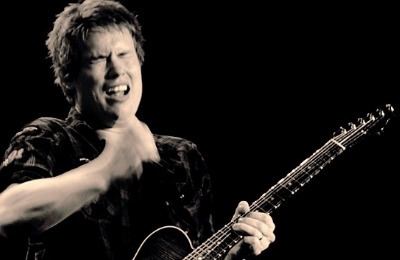
Jonny Lang (2010)
“I’ve never been the type of person who enjoys any type of content in any art that is just there to please people,” Lang says. “I’ve always appreciated when somebody is direct and honest. That’s where all the good stuff is for me; that’s what I enjoy. I want to be that way too. I want to have my identity.” (read more...)

Katie Melua (2010)
“The first time I heard music that completely destroyed me,” Katie Melua recalls, “was Beethoven’s ‘Moonlight Sonata’ that my mum was playing on the piano when I was six years old.” It’s a memory she’s reflected upon from time to time over the years, but for her its resonance remains profound.
“It was like butterflies in my stomach,” the 26-year-old singer/songwriter describes. “It was like my heart was just dancing. It was like being totally in the moment. All I’ve ever tried to do is just to keep those feelings alive when it comes to making music.” (read more...)

James Williamson (2010)
“There really was no sound like we had and there was no style like we had,” says the legendary guitarist. “I think the term’s been said before; there was no vocabulary for what the Stooges did at that point. But later on, people imitated us. So over the years their vocabulary was developed and people heard it enough that they became accustomed to the sound of it. And now all that stuff, Raw Power or Kill City or whatever, sounds contemporary to people because it reflects on all the other people who imitated us.” (read more...)

Nona Hendryx (2012)
“The racism and bigotry in America,” says Hendryx, “it’s a small minority of people but they’re very vocal and very powerful. And part of their bigotry and racism is about holding onto power more so than actually hating or disliking people of color. The people who hate and dislike people of color are not the powerful. The powerful are bigots because they want to maintain control, and they use that power to stir those who have lesser power and lesser means to help support their beliefs and their bigotry.” (read more…)
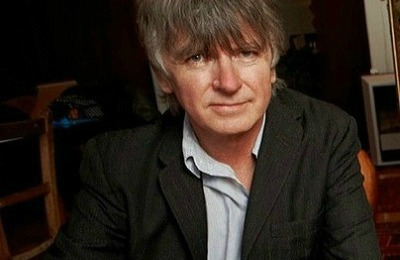
Neil Finn (2011)
“A lot of your best work doesn’t necessarily get noticed at the time. There are circumstances that create… Maybe the stars line up, people take notice. They’re all paying attention. Certain songs rise in those times, and they become your hits. But I think in a parallel universe there are a whole lot of other songs that you write that are potentially equal songs, but don’t come at a time when people are paying attention. But they resonate over a long period of time, and I think they sometimes have their day a lot longer. It’s a good thing to remember and put some faith in.” (read more...)
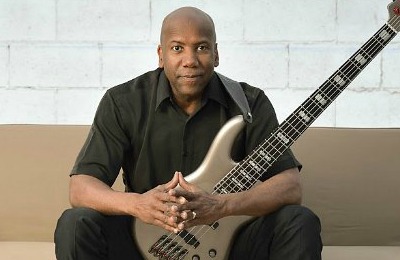
Nathan East (2014)
“There’s not a day that I don’t wake up that I’m not thankful for the privilege of playing music. At the same time, none of the gigs that I’ve had have been gigs where I’m thinking, ‘I’m just doing this for the money.’ Most of them I just absolutely loved the music, the people. I mean, what’s not to love? What’s not to be enthusiastic about?” (read more...)
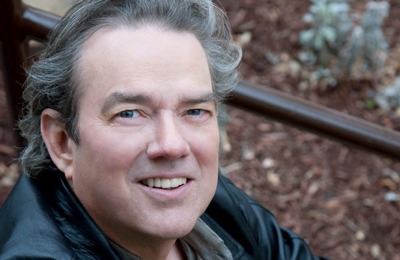
Jimmy Webb (2010)
The songs of Jimmy Webb occupy an indelible place in popular music. From the ones that everybody knows—“Wichita Lineman,” “Galveston,” “By The Time I Get To Phoenix,” and “MacArthur Park” among them—to such standout performances as “Up, Up And Away” (The Fifth Dimension), “The Worst That Could Happen” (The Brooklyn Bridge), “All I Know” (Art Garfunkel), and “The Highwayman” (The Highwaymen), they’ve traversed genres and generations for nearly the past half century.
“There are these curious twists and turns to my repertoire,” adds Mr. Webb, “and the ways it’s interacted with both the kind of traditional world of songwriting where I was very well recorded by the likes of Mr. Sinatra, Mr. Bennett, Barbra Streisand, Liza Minnelli—the traditional warhorses of pop music—but I’m equally well represented by Maynard Ferguson and Stan Kenton and Pat Metheny and a whole group of jazz musicians.” (read more...)

